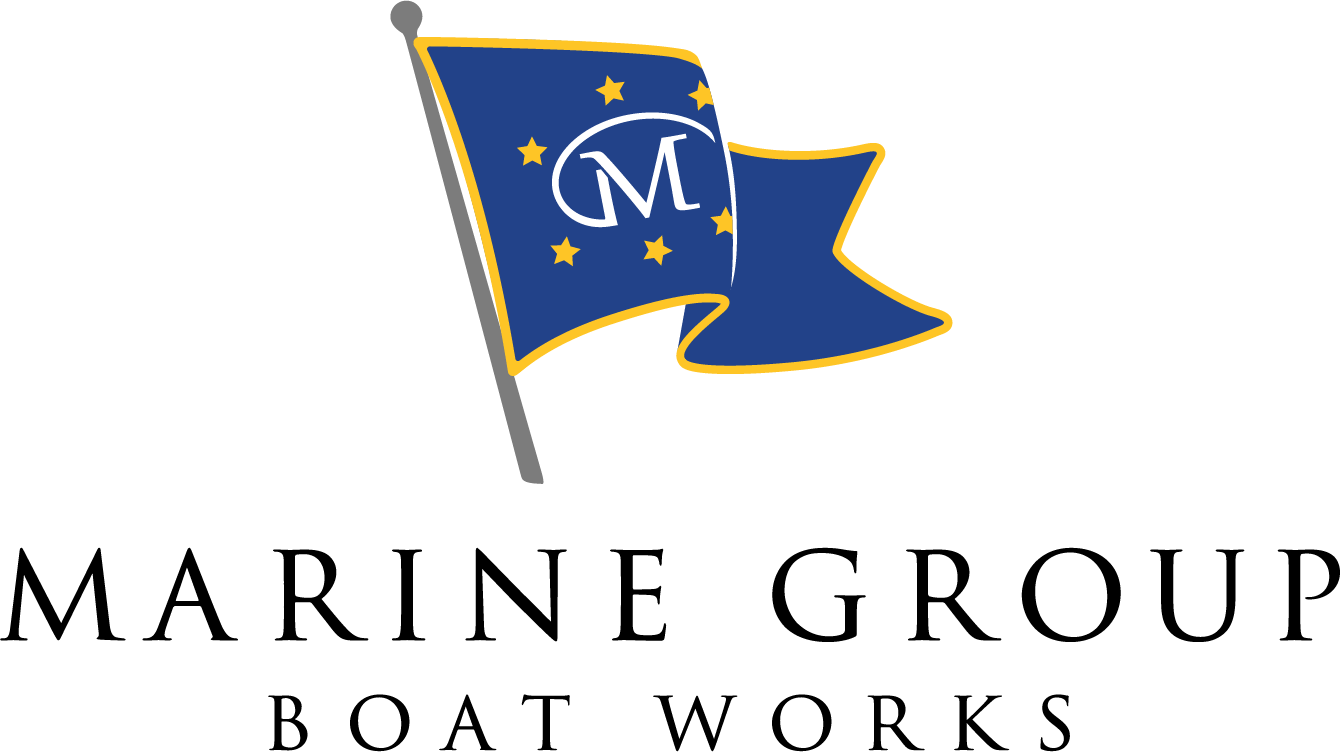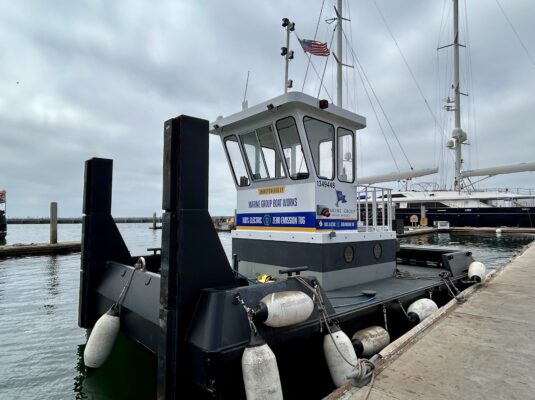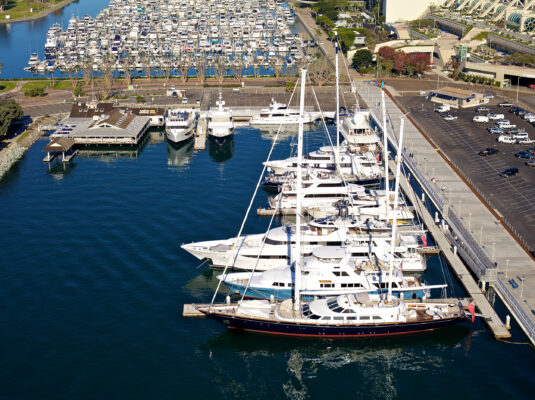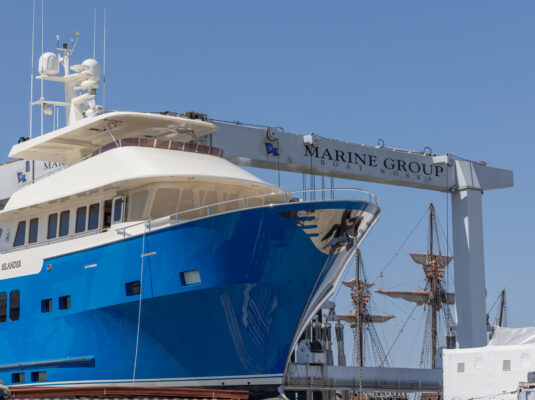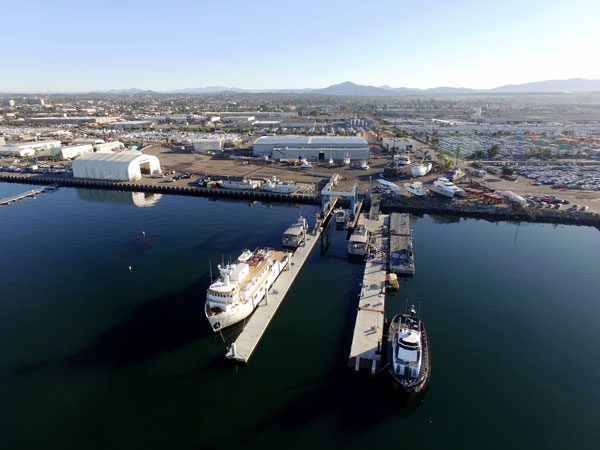
August 08, 2017
Press Releases San Diego CAShortage of Prop Shops in San Diego Prompts Local Boatyard to Open One
Marine Group Boat Works Now Tuning and Dynamic Balancing Props Up to 60” in Diameter, Selling VEEM Props and Gyro Stabilizers
(San Diego, CA, August 9, 2017): Marine Group Boat Works, LLC (MGBW), a family-owned boatbuilding and repair company with two haul out facilities in Chula Vista and National City and one in Cabo Mexico, recently opened a new propeller shop at its Chula Vista headquarters offering a wide array of prop services including digital PropScan technology, tuning and dynamic balancing of props up to 60” in diameter. This comes after recognizing a lack of prop shops in San Diego that are capable of handling complex propeller and performance issues. Along with providing specialized propeller services, MGBW became the newest West Coast resellers of VEEM Propellers and Gyro Stabilizers.
“There’s been a rise in the amount of complex propwork requests coming from our customers, and we were outsourcing all of the work to Los Angeles” said Eric Lundeen, director of the repair and service department at MGBW. “Turnaround time was an issue—there were times when we’d get the propeller back, and it wasn’t quite tuned perfectly and the prop would have to be sent out again. It came to a point where we had to make the investment to purchase our own equipment and train our team in order to provide our customers with high quality propeller services but not at the expense of time.”
Propeller performance has always been a necessity for government and commercial vessels while more of a luxury for private boat owners. In recent years, however, there has been a growing trend in regards to boat owners investing more into tuning and balancing props as a way of achieving peak performance. Owners are seeing that the incurred cost of correct propeller maintenance can ultimately result in increased fuel efficiency, precision handling and reduced wear and tear on the drive train which will in turn save them money in the long run.
“Maintaining a boat doesn’t just mean bottom paints and zinc replacement. There’s also vibration and performance issues that can be related to unbalanced or damaged props,” said Lundeen. “Most of the props we’ve scanned were out of tune and a majority were tied to noise and vibration issues.”
Resolving propeller maintenance issues is crucial to ensuring that a vessel is performing at its best. A damaged or unbalanced prop can impact a vessels ability to pick up speed, provide a stable ride and achieve optimum fuel efficiency. By having their vessel brought into a prop shop every so often for routine maintenance and repairs, an owner can avoid long term damage to the drive train and increase the life expectancy of the propeller itself. This will ultimately save the owner from unnecessary costs and wasted time.
Vessel owners should take full advantage of the improved custom prop designs and maintenance services available in today’s world of boating such as computerized prop scans. PropScan technology, once developed and solely utilized by the Royal Australian, Canadian and United States Navy, has since introduced digitally precise propeller maintenance reports to recreational boat owners. PropScan allows MGBW to read tolerances on a prop to ensure that the technician’s work in tuning the propeller is meeting ISO class standards for achieving the best performance out of the prop. By meeting the most accurately defined tolerance for propellers, ISO 484/2 Class S, a vessel’s fuel efficiency can be improved by up to 20% and its top speed can be increased by up to four knots. Vibrations can also be eliminated allowing for a smoother ride, reducing any engine wear and long term damage to the propeller bearings. Digital prop scan reports also allow technicians to properly address common wear and tear issues to the blades such as cavitation, which can be caused by a number of factors all of which include operational flaws with the propeller itself.
“When fitting a boat with a new propeller it is important to take into account crucial elements such as its material, pitch, diameter, rake, direction of rotation, whether the prop blades should be cupped or not, and how many blades it should have. All of these factors play into how the vessel will handle and fare on the water,” said Ian Green, MGBW’s propeller specialist. “While selecting the correct propeller design is a huge key to a vessels performance and durability, without the proper maintenance it means almost nothing. It is paramount for owners to carry out their due diligence and routinely upkeep their propellers if they are aiming to get the best usage out of them.”
If purchasing new props is in the boat owners’ cards, then MGBW would be a one stop shop with their partnership with VEEM, a market leader in the propeller industry. VEEM consistently manufactures top of the line propellers through their use of 100% Computer Numerically Controlled (CNC) technology to machine props which allows them to produce equipment that surpasses ISO Class S standards. The superior quality of VEEM propellers stem from the exclusion of any hand finishing or grinding in the manufacturing process which can cause distortions in the blades. Employing CNC technology in their manufacturing process eliminates the possibility of any deviation in the quality of their propellers which makes their products almost a necessity in areas that require peak performance such as the sports fishing market.
To compliment VEEM’s obsession of providing consumers with the perfect propeller they are currently leading the prop industry in innovations that not only increase vessel performance but also make adjusting blade pitch easy and cost efficient. They have incorporated their patented Interceptor design into each of their propellers which affords owners the ability to adjust blade pitch without having to pull their vessels out of the water. This was made possible by adding a groove into the pressure face of each blade that allows for an adjustable protruding strip to be inserted manually. The strips are available in different heights and angles, each one having a unique affect on the propellers pitch and the vessels overall ride. The adjustable pitch on all VEEM propellers make alterations virtually hassle free. As VEEM continually improves the performance of its propellers, it has added technically advanced gyro stabilizing systems to its product line. VEEM gyro stabilizers pair perfectly with its propellers to provide vessel owners a more stable and comfortable ride on rough waters and in choppy weather conditions. MGBW’s new prop shop and updated inventory of VEEM props and stabilizing products is indicative of a new age in recreational yachting, one with an emphasis on comfort and optimal performance. These units are becoming increasingly more affordable, size compliant and overall more efficient in order to meet the growing demands of all yacht owners. What was once a luxury market item is now becoming an industry norm.
About Marine Group Boat Works
Marine Group Boat Works is a full-service, family-owned boatbuilder and repair company with two boatyards in San Diego and one in Cabo servicing vessels ranging from 10 feet (3 meters) to 220 feet (67 meters), including sportfishers, superyachts, commercial tugs and passenger vessels. Among the three facilities, the company employs more than 195 ABS-certified welders, shipfitters, pipefitters, mechanics, electricians, propeller specialists, painters and equipment operators. More information can be found at www.marinegroupboatworks.com.
About VEEM
Established in 1956, VEEM is among the market leaders in propeller and gyro stabilization technology worldwide. For more information visit www.veempropellers.com or www.veemgyro.com.
